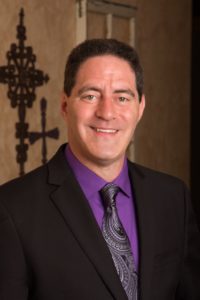 Andrew Rappaport is the founder and president of Striving for Eternity Ministries, which focuses on Evangelism, Outreach, and education. He is also the author of What Do They Believe, a systematic theology of world religions, as well as What Do We Believe, which is a systematic theology on Biblical Christianity. He joins me this month to discuss the latter.
Andrew Rappaport is the founder and president of Striving for Eternity Ministries, which focuses on Evangelism, Outreach, and education. He is also the author of What Do They Believe, a systematic theology of world religions, as well as What Do We Believe, which is a systematic theology on Biblical Christianity. He joins me this month to discuss the latter.
Podcast: Play in new window | Download (Duration: 1:10:21 — 32.5MB)
Subscribe: RSS | Subscribe to Echo Zoe Radio
An Outline of the Discussion
- Andrew has an extensive class on Systematic Theology that is available at his Youtube channel.
- Theology is the study of God. Systematic means to put the study into categories.
- Systematic Theology seeks to answer questions. For example: what is our authority?
- The Bible was written by men, superintended by God. God used their personalities in the writing. Every word is as God intended it to be. Thus we can say that men wrote the Bible, but we can also say that God wrote it.
- In looking at the character of God, Arminians will say they think God “looked down the corridors of time” and saw who would repent & believe in Him, and that's who He chose to be saved. This impugns the character of God, as it puts God within the realm of time. It also diminishes his omniscience, as He had to see what you would do before knowing He could/should elect you.
- In regard to Biblical Transmission, the idea that the Bible came to us much like the “telephone game,” where copies are made of copies, and errors are introduced along the way is a poor analogy. One reason is that when a copy is made, the original continues to exist, and can be compared to.
- Sometimes the Bible was copied by people who didn't know how to read the original language. In fact, the most accurate copies tended to be made by such people, as they didn't have a way to inject their theological biases into the copies.
- 75% of all textural variants are spelling errors. 19% are differences that are not meaningful (they don't change the understanding in any way.) 5% are meaningful, but not viable (the meaning changes, but we can get back to the original to figure out what it should have been.) <1% are both meaningful and viable (the meaning changes, and we can't figure out what the original said.)
- There are over 8,000 manuscripts in existence, making it easy to get back to the original.
- Understanding the Trinity is not a problem to be solved, rather it's a solution to a problem. The problem is that God (the Father,) Jesus (the Son,) and the Holy Spirit are all referred to as God. They also have the attributes of God. In addition, they are all distinct and separate. Finally, the Bible teaches Monotheism; that there is only one God. The solution to this seeming contradiction is the Trinity.
- Analogies from Creation to describe the Trinity always fail. The most common failure is toward the heresy of Modalism.
- One challenge to the claim of Jesus' omniscience is when he says “But concerning that day and hour no one knows, not even the angels of heaven, nor the Son, but the Father only.”
(Matthew 24:36 ESV.) Andrew explains that this is a Jewish idiom. Many Christians do not know how to understand this verse because they don't understand the underlying idiom behind it. - We were born with a sin nature.
- The sin nature is imputed from father to son. Jesus not having a human (sinful) father meant Adam's sin was not imputed to Him.
- All religions, outside of Biblical Christianity, teach a salvation based on works, rather than imputed righteousness based on faith in Christ our savior.
- The Eternal State is the last category we discuss in Systematic Theology.
- Eternal Life is not something we get when we die, it's something we have already.
- The nature of our position in Christ, of our eternal life, is reflective of the nature of God. It is irrevocable (Romans 11: 28.) Also, He's omniscient, and knows all our sins, including the ones we haven't committed yet.
Scriptures Referenced
- Titus 1:2
- John 8 & 10
- Romans 5:12ff
- Romans 8:35-39
- Romans 11:28
Additional Resources
- What We Believe – Book by Andrew Rappaport
- Striving for Eternity Systematic Theology Class at Youtube
- Do you need to believe the Trinity to be saved? – Rapp Report 2-minute Daily
- Biblical Doctrine – John MacArthur & Richard Mayhue (Affiliate Link)
Related Episodes
- Patrick Szalapski: The Essentials of the Christian Faith
- Patrick Szalapski: The Atonement
- Phil Johnson: The Doctrines of Grace
- Patrick Szalapski: The Incarnation
- Ryan Habbena: Sanctification
- Bob DeWaay: The Authority of the Bible
- Mike Abendroth: The Epistle to Laodicea and the Canon of Scripture
- Bob DeWaay: The Doctrine of the Church
- Dan Phillips: The World-Tilting Gospel
- Bob DeWaay: Salvation & Condemnation
- Kofi Adu-Boahen: Union with Christ
- Frank Turk: Our Relationship to the Local Church
- Dr. R. Scott Clark: The Trinity
- Len Pettis: Defending Hell
- Bob DeWaay: The Resurrection
- Andrew Rappaport: Hermeneutics



